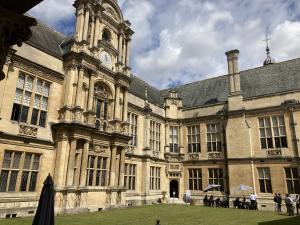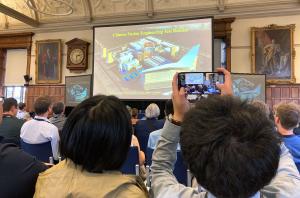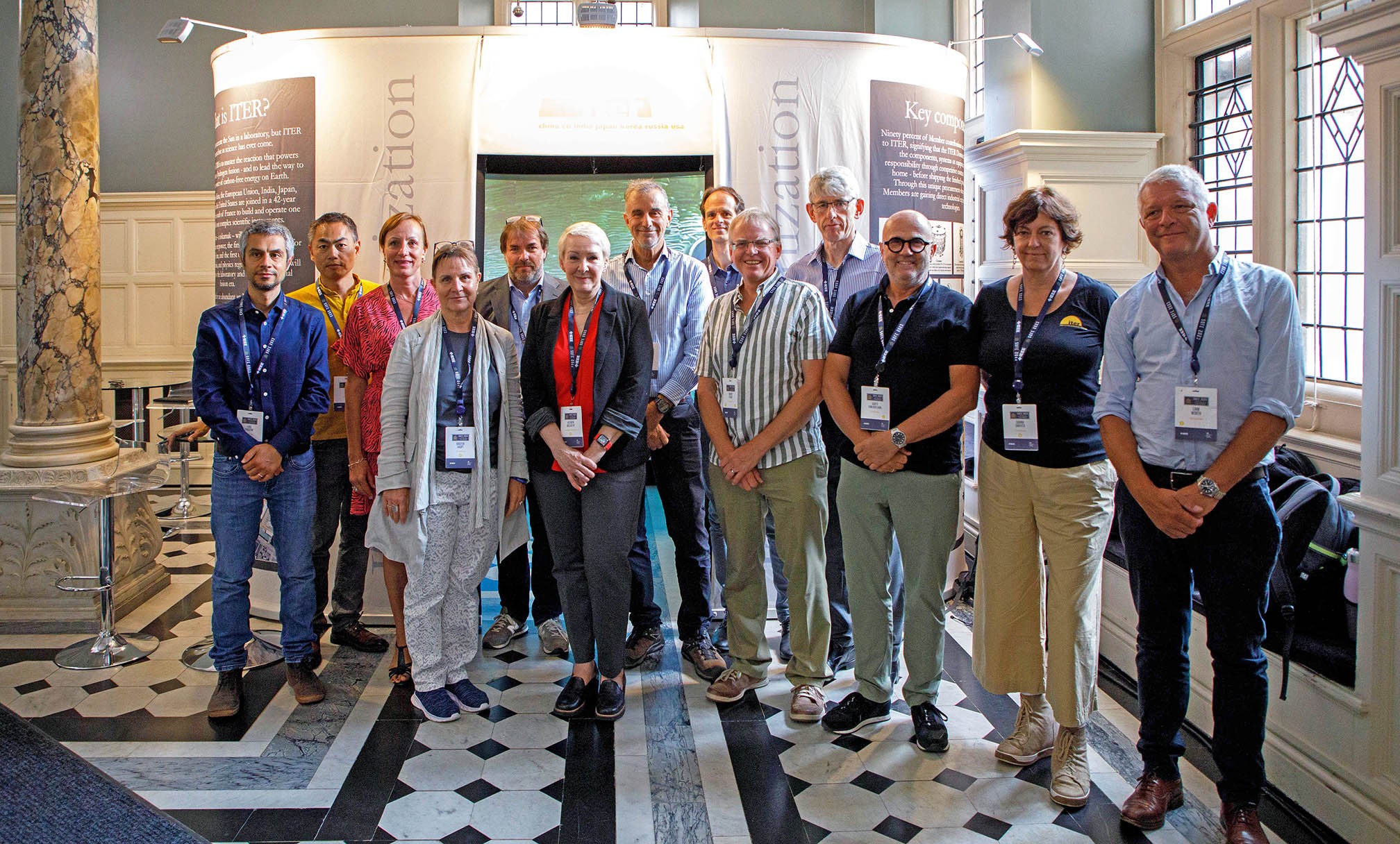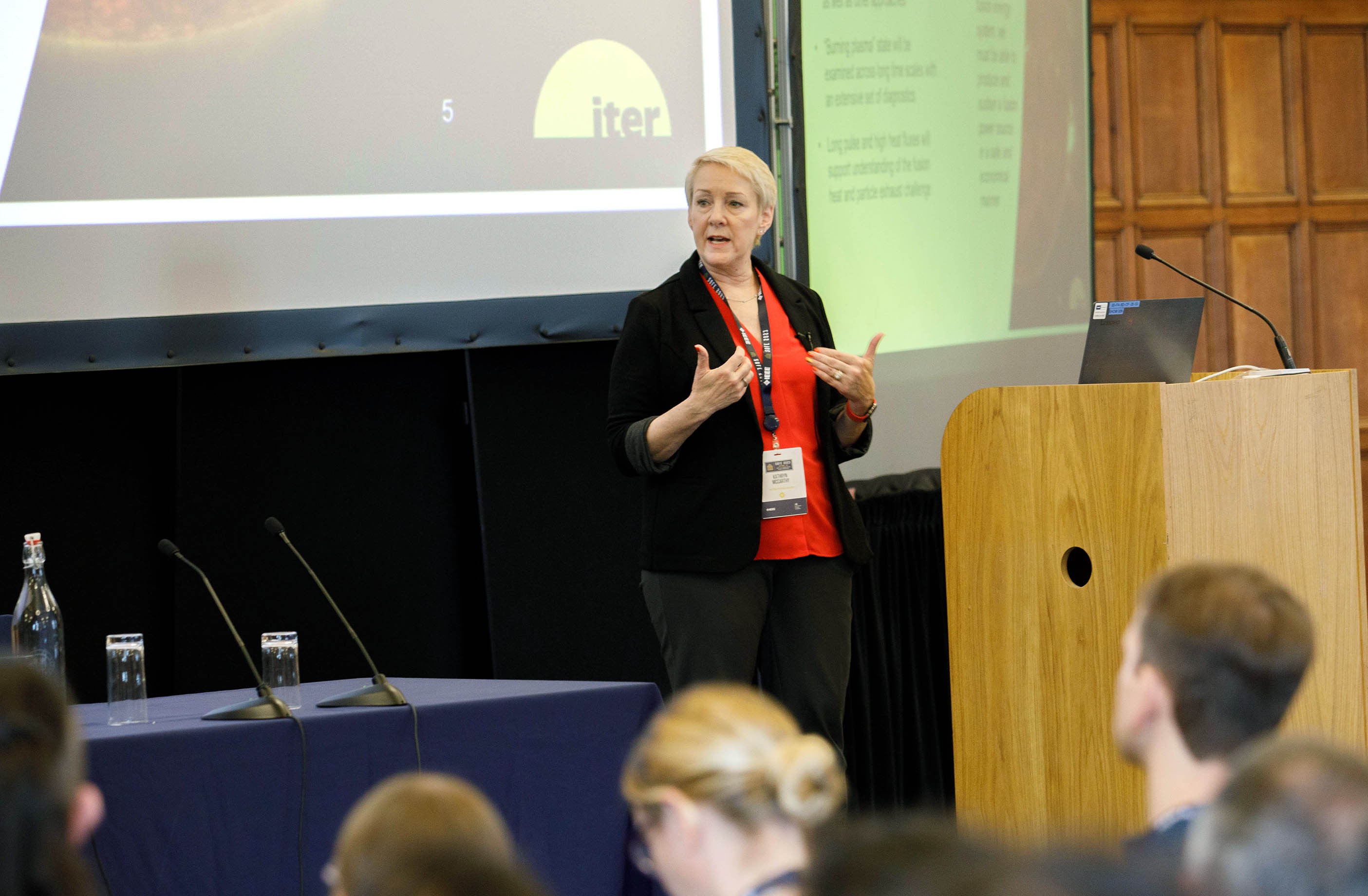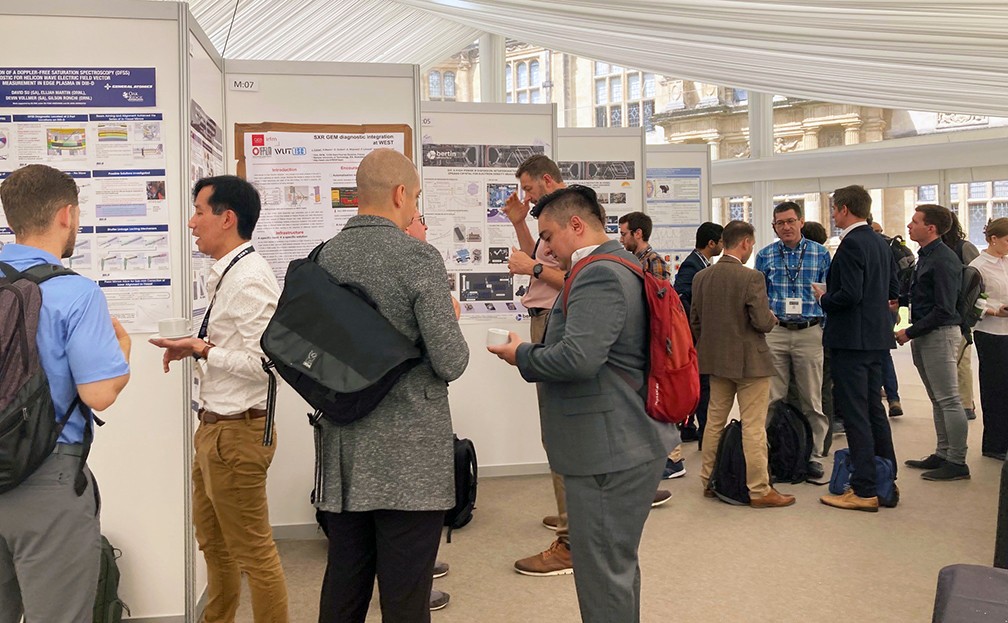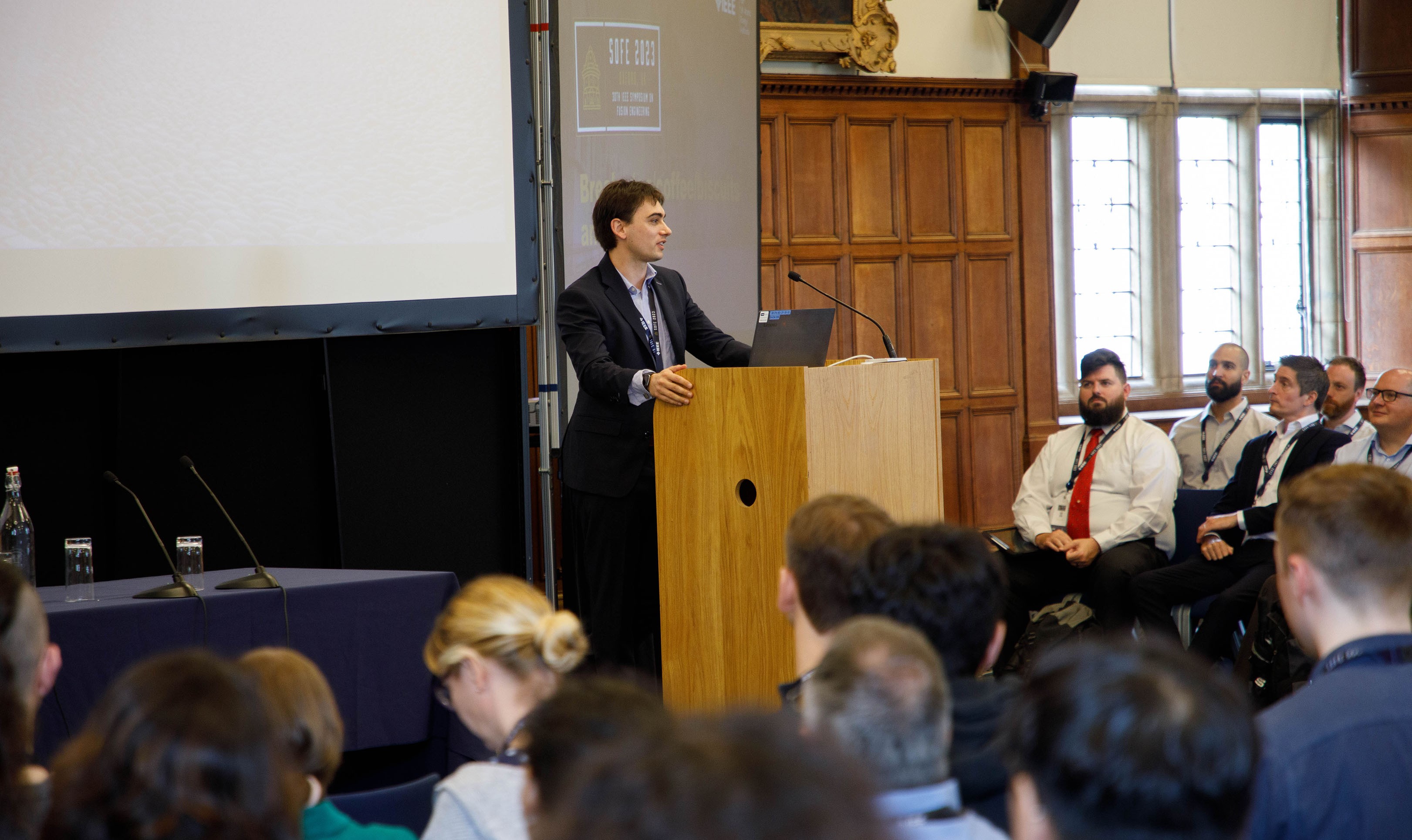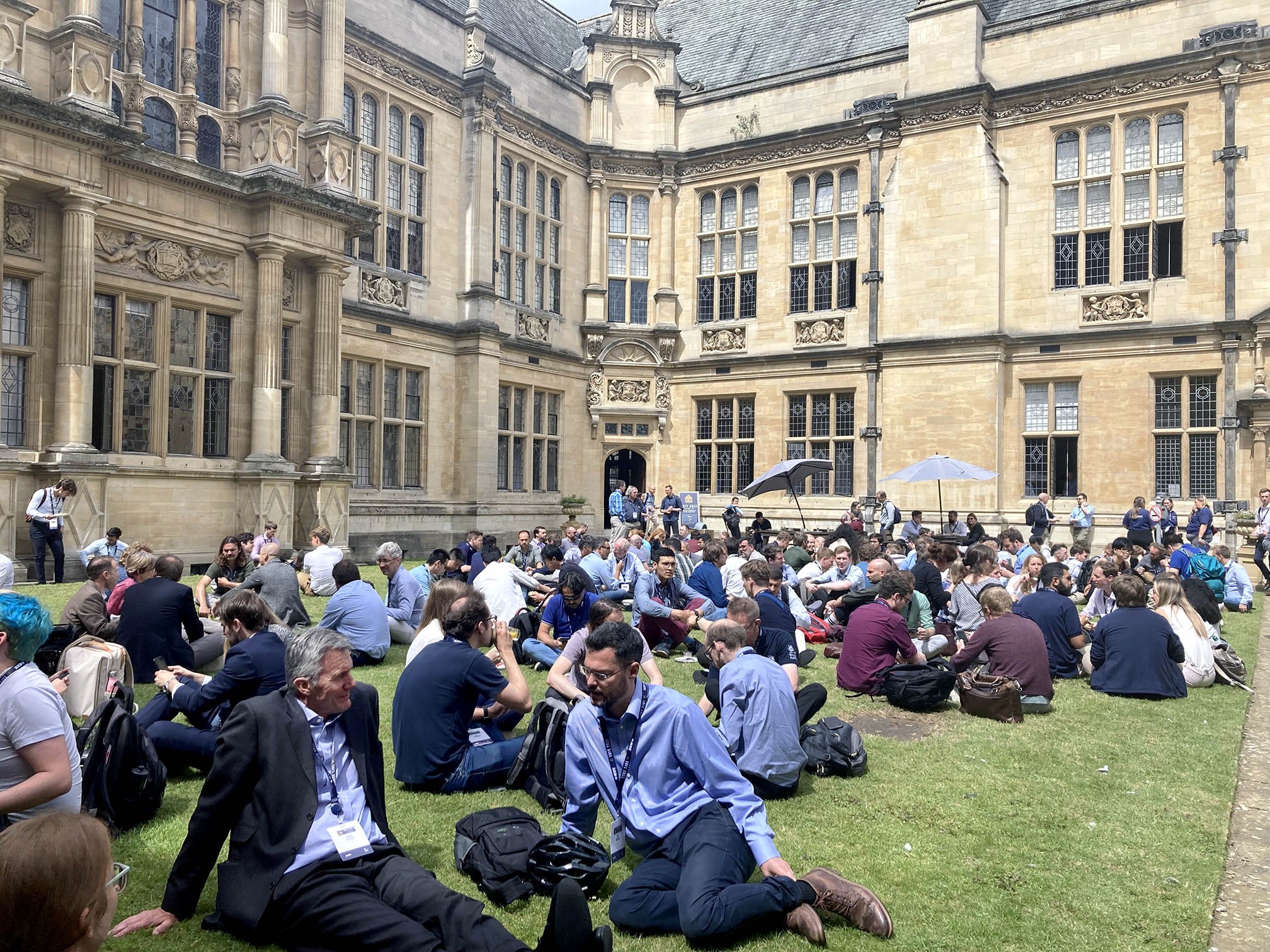Where history met the future
What a venue for a conference! The Examination Schools of the University of Oxford were built in the late 1880s to host the annual examinations of all of the university's colleges. These hallowed halls provided a spectacular backdrop for the 30th IEEE Symposium on Fusion Engineering (SOFE), which took place from 9 to 13 July 2023.
According to Gorley, the focus of the organizers was to continue the conference's tradition of highlighting strong fusion engineering. "But this year we wanted to also capture the new wave that's coming along," he said. "I think there is a new optimism. There are more people and more funding going into fusion, and that is bringing a whole range of new ideas and excitement."
ITER was represented by a large group of scientists and engineers, who were present to share their expertise across a large range of engineering topics, including vacuum technology, construction coordination, diagnostics, plasma control, and remote handling, and also share the efforts underway on site to recover from the technical setbacks announced last year—an "openness" that was appreciated, according to Gorley.
Kathryn McCarthy, the Head of the US ITER Project, opened the conference with a comprehensive account of project's status and aims. "ITER is an important part of the international fusion ecosystem. It is providing practical experience in designing, fabricating and assembling a licensed fusion facility. It is developing the fusion supply chain and industrial capacity, and helping to build a diverse fusion workforce. All of this is highly valued information for ITER's partners and for the private fusion sector. ITER will demonstrate processes at industrial scale, not just lab scale."
Sehila Gonzalez from the non-profit Clean Air Task Force, was enthused about technology development efforts. "All the technologies that fusion needs to develop are being explained and discussed here," she said. Discussions also focused on how to set up a fusion industry, and on how to address regulatory and even non-proliferation issues. "This is very unique and it shows the progress that the field is making towards industrialization." Ian Chapman, UKAEA CEO, also stressed the importance of developing the economic and regulatory aspects of the fusion industry.
Looking ahead to a future powered by fusion energy, Gianfranco Federici, head of the Fusion Technology Department at EUROfusion, stressed the need for engineering skills. "The work force is the critical bottle neck for fusion development, in particular concerning engineers." In Europe, he said, ten times more PhD students are trained in fusion physics than in engineering. Federici also advocated for stimulating "more objective and open technical discussions across the community."
In that respect, the SOFE 2023 was a new beginning.

